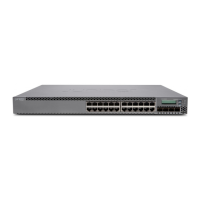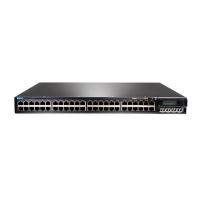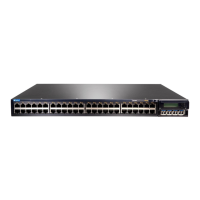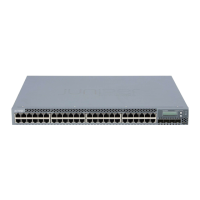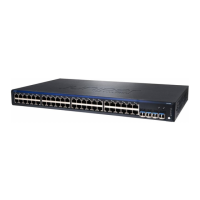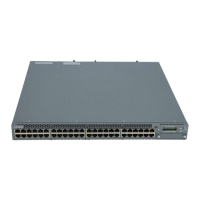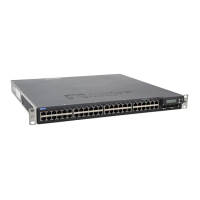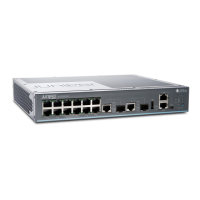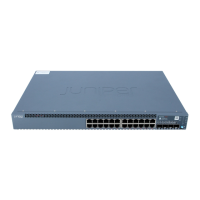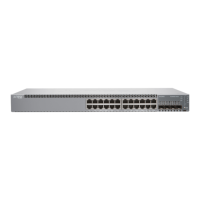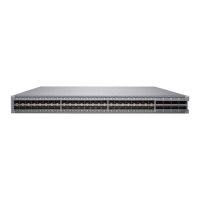Description Configure Dynamic Host Configuration Protocol (DHCP) local server options on the router
or switch to enable the router or switch to function as an extended DHCP local server.
The DHCP local server receives DHCP request and reply packets from DHCP clients and
then responds with an IP address and other optional configuration information to the
client.
The extended DHCP local server is incompatible with the DHCP server on J Series routers
and, therefore, is not supported on J Series routers. Also, the DHCP local server and the
DHCP/BOOTP relay server, which are configured under the [edit forwarding-options
helpers] hierarchy level, cannot both be enabled on the router or switch at the same time.
The extended DHCP local server is fully compatible with the extended DHCP relay feature.
The dhcpv6 stanza configures the router or switch to support Dynamic Host Configuration
Protocol for IPv6 (DHCPv6). The DHCPv6 local server is fully compatible with the
extended DHCP local server and the extended DHCP relay feature.
NOTE: When you configure the dhcp-local-server statement at the routing
instance hierarchy level, you must use a routing instance type of virtual-router.
The remaining statements are explained separately. See CLI Explorer.
Required Privilege
Level
system—To view this statement in the configuration.
system-control—To add this statement to the configuration.
Related
Documentation
• Extended DHCP Local Server Overview on page 22
• DHCPv6 Local Server Overview on page 40
173Copyright © 2017, Juniper Networks, Inc.
Chapter 12: Configuration Statements (DHCP and DHCP Relay)
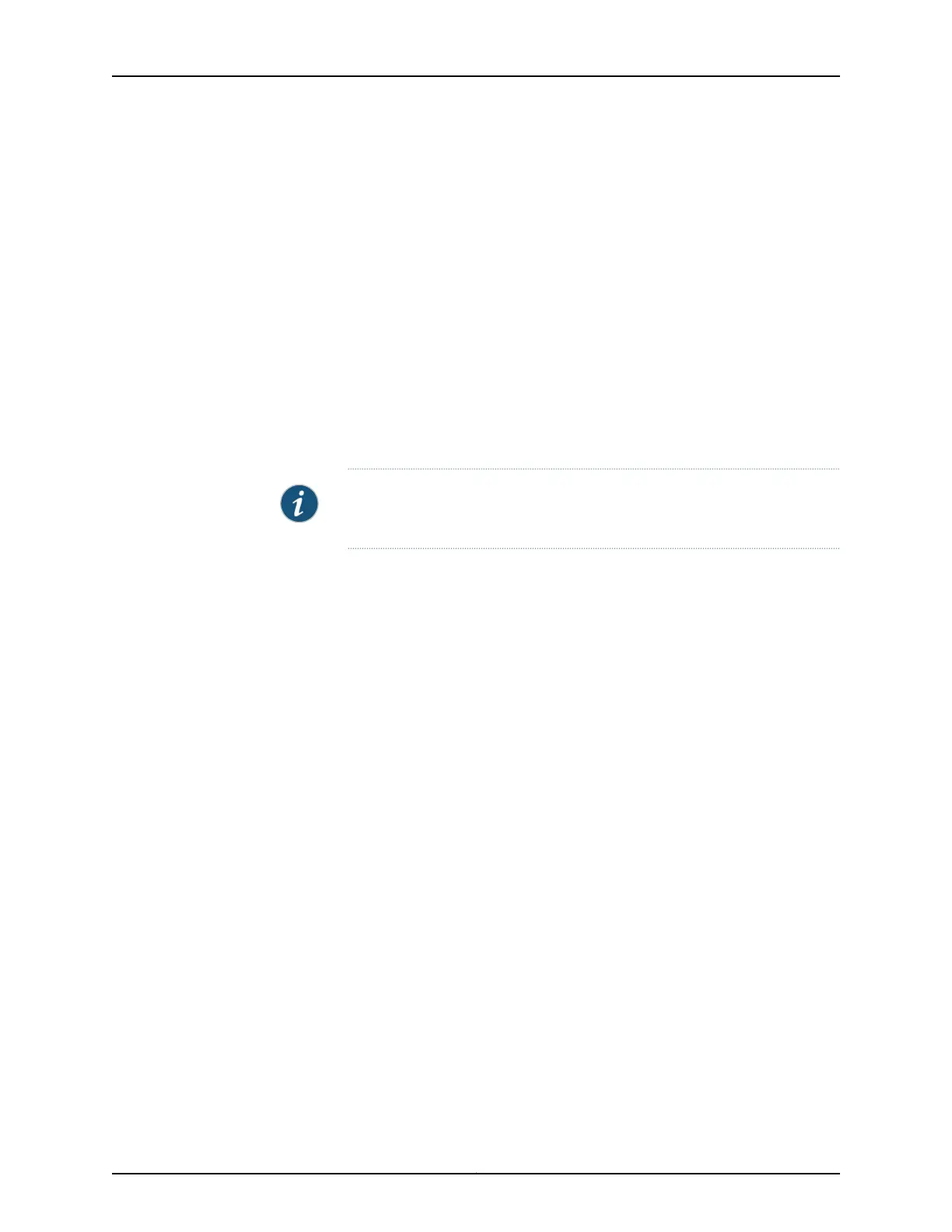